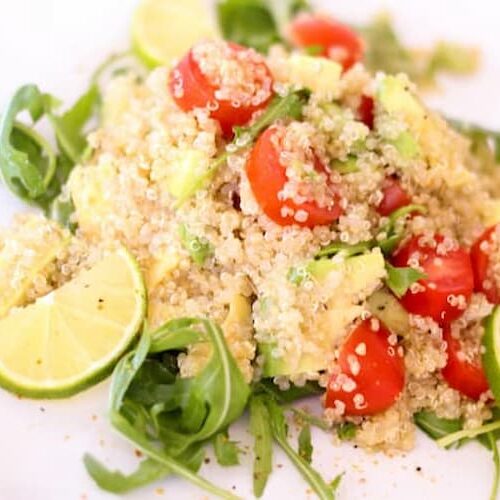Inflammation. It’s not just for health headlines.
It’s a fact.
Scientists are measuring levels of inflammation in our bodies and finding that it can have serious negative effects on our health, especially when it’s chronic or lasts a long time.
Inflammation has been linked to obesity, heart disease, Alzheimer’s, and diabetes, just to name a few serious illnesses that can kill you.
Personally, I’ve experienced my share of inflammation-ridden pain and sickness, ranging from a 6-month long stint of mono, which was initially believed to be leukemia, to migraines, IBS, alopecia, and more.
Inflammation is your body’s initial response it employs to protect itself against various harmful stimuli.
Your body is a remarkable thing.
Severe and chronic sinus infections also plagued me six times a year for a number of years. To treat these infections, I had to inhale 2 different types of potent antibiotics through a mast twice daily. It was very disheartening since I’m a holistic health practitioner and prefer natural remedies to medical ones.
It was clear that my immune system was weak.
But the good news was that once I began eliminating processed foods & sugars from my diet and started my own journey to a healthier lifestyle, my health challenges began to abate.
I haven’t had a sinus infection in over 10 years and I’m very proud to say that my ENT says he wishes I could teach his patients how to do what I did.
What I learned was that our diet – what we ingest – is a massive contributing factor to inflammation.
Consuming a diet high in processed foods, sugar, trans fats, and excessive omega-6 fatty acids while lacking sufficient antioxidants and omega-3 fatty acids can trigger inflammation.
And then there’s the added stress factor.
Chronic stress is so prevalent. Everyone is stressed out. Not managing your stress levels effectively can lead to the release of stress hormones like cortisol, which, in excess, contributes to inflammation.
There is so much you can learn about inflammation and ways to prevent it, here are my top food recommendations packed with anti-inflammatory antioxidants that are proven to help reduce it.
1. Berries, Grapes, and Cherries

Why save the best for last? Perhaps the most amazingly delicious anti-inflammatory foods are a sweet favorite of yours. They’re certainly favorites for me!
Berries, grapes, and cherries are packed with fiber, and antioxidant vitamins (e.g. vitamin C) and minerals (e.g. manganese).
Oh, and did I forget to mention their phytochemicals (phyto=plant)?
Yes, many antioxidants such as “anthocyanins” and “resveratrol” are found in these small and delicious fruits.
In fact, berries, grapes, and cherries may be the best dietary sources of these amazingly healthy compounds.
2. Broccoli and Peppers

Broccoli is a cruciferous vegetable that contains the antioxidant “sulforaphane.” This anti-inflammatory compound is associated with reduced risk of heart disease and cancer.
Bell peppers are one of the best sources of the antioxidants, vitamin C and quercetin.
Pro Tip: Choose red peppers over the other colors. Peppers that are any other color are not fully ripe and won’t have the same anti-inflammatory effect you’re looking for.
I pack these two super-healthy vegetables together in an anti-inflammatory recipe (see below).
3. Healthy Fats (avocado, olive oil, fatty fish)

Choosing the right fats to support your health is important – but it can be very confusion, right?
I’ll try to make it as simple as possible:
- Trans fats can be very inflammatory
- Neutral fats such as saturated fats are less so
- Anti-inflammatory fats are unsaturated ones (the healthiest kind) and include omega 3’s
Unsaturated fats are linked to a reduced risk of heart disease, diabetes, and some cancers.
Choose fresh avocados, extra virgin olive oil, small fish (e.g. sardines and mackerel), and wild fish (e.g. salmon) and don’t forget the omega-3 seeds like chia, hemp, and flax.
4. Green Tea
Green tea contains the anti-inflammatory compound called “epigallocatechin-3-gallate,” otherwise known as EGCG.
EGCG is linked to reduced risk of heart disease, certain cancers, obesity, and Alzheimer’s.
Drinking steeped green tea is great, but have you tried matcha green tea? It’s thought to contain even higher levels of antioxidants than regular green tea.

5. Turmeric
Turmeric contains the antioxidant curcumin – another anti-inflammatory option.
This compound has been shown to reduce the pain of arthritis, as well as have anti-cancer and anti-diabetes properties.
I’ve added it to the broccoli and pepper recipe below for a 1-2-3 punch, to kick that inflammation.
6. Dark Chocolate

A slightly more decadent option than my #1 pick of berries, grapes, and cherries – but for good reason.
Dark chocolate, with at least 70% cocoa is packed with anti-inflammatory antioxidants (namely “flavonols”). These reduce the risk of heart disease by keeping your arteries healthy.
Flavonols have even been shown to prevent “neuro-inflammation” (inflammation of the brain and nerves). Reducing neuro-inflammation may help with long-term memory and reduce the risk of dementia and stroke.
While dark chocolate does have health benefits, it’s not recommended to grab hold of all your favorite candy bars and indulge with abandon. In fact, candy bars aren’t generally made with good quality dark chocolate.
So choose wisely if you’re aiming to avoid inflammation.
With so many delicious and nutritious anti-inflammatory foods to choose from, ranging from colorful berries, vegetables, and spices to healthy fats, and even cocoa, you can easily find anti-inflammatory options to add to your diet.
I don’t know about you, but it excites me to know that something as simple as adding specific foods to your daily routine can help calm down inflammation and have you feeling better in no time.
So now it’s your turn:
- So now it’s your turn:
- Which of these anti-inflammatory foods will you add to your routine?
- Did any of these anti-inflammatory foods surprise you?
- What foods will you eliminate which are inflammatory?
Hit reply and let me know. I’d love to hear from you.
If you’ve been experiencing inflammation and pain, and just haven’t figured out how to get back to feeling great again, or you don’t know how to add that healthy nourishment to keep you energized and inflammation-free throughout the day and would like some personalized attention, schedule your free “HEALTHY YOU” Clarity Call with me today.

This is a complimentary session. We’ll discuss your journey and self-care goals, and by the end of our chat, you’ll have:
- Some strategies and solutions
- A simple Action Plan &
- A free resource or two to help
How? Email lwadsworth@verizon.net and let’s chat.

Broccoli, Pepper, Turmeric: Anti-inflammatory Quinoa
Ingredients
- 3/4 cup pre-rinsed quinoa
- 2 tbsp coconut oil
- 1 med onion diced
- 1 bell pepper cored & diced
- 1 dash salt
- 1/2 tbsp turmeric
- 1 dash black pepper
- 2 cups broccoli chopped
Instructions
- In a saucepan place 2 cups of water and bring to a boil. Reduce heat and add the quinoa and simmer until the water is absorbed (about 10-15 minutes).
- Melt coconut oil in a skillet. Add diced onions, turmeric, pepper and salt, and lightly sauté for a few minutes.
- Add broccoli and lightly sauté for 5-6minutes, until it becomes softened.
- Add the cooked quinoa and stir everything together.
- Serve & enjoy!
- Tip: Add some cayenne pepper or curry spice for an extra spicy kick.


